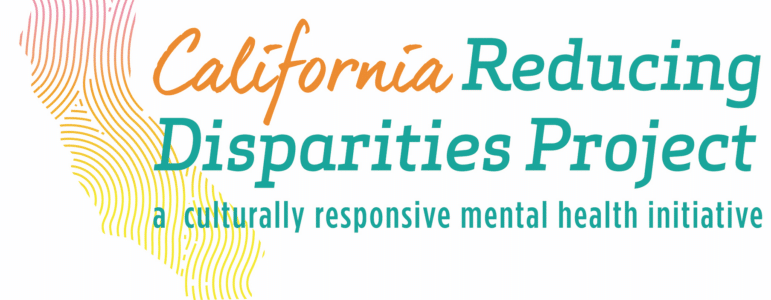Advancing mental health equity for five key populations in California.
Community Driven Solutions
Welcome to the California Reducing Disparities Project website. Here you will find resources and information related to this cost-effective and award-winning project, funded by the Mental Health Services Act, aimed at reducing mental health disparities for African American, Latino, Native American, Asian and Pacific Islander, and LGBTQ+ populations in California.
Quick Reference Links
The California Reducing Disparities Project (CRDP) Local Evaluation Reports can be read here: Evaluation Framework – California Reducing Disparities Project
Updated & Featured Resources
The California Reducing Disparities Project (CRDP) Historical Storytelling Report
Latino Service Providers is 2024 California Nonprofit of the Year
THE CALIFORNIA REDUCING DISPARITIES PROJECT PHASE II STATEWIDE EVALUATION REPORT IS RELEASED
The California Reducing Disparities Project (CRDP) is a first of its kind, PEI (Prevention and Early Intervention) initiative funded by the Mental Health Services Act (MHSA, or Proposition 63). This statewide initiative aims to pair community driven mental health solutions with rigorous data for each of the 35 pilot projects. In doing this, the data and evaluation works to identify solutions for the communities in California that have historically been underserved, excluded, and offered inappropriate care.






